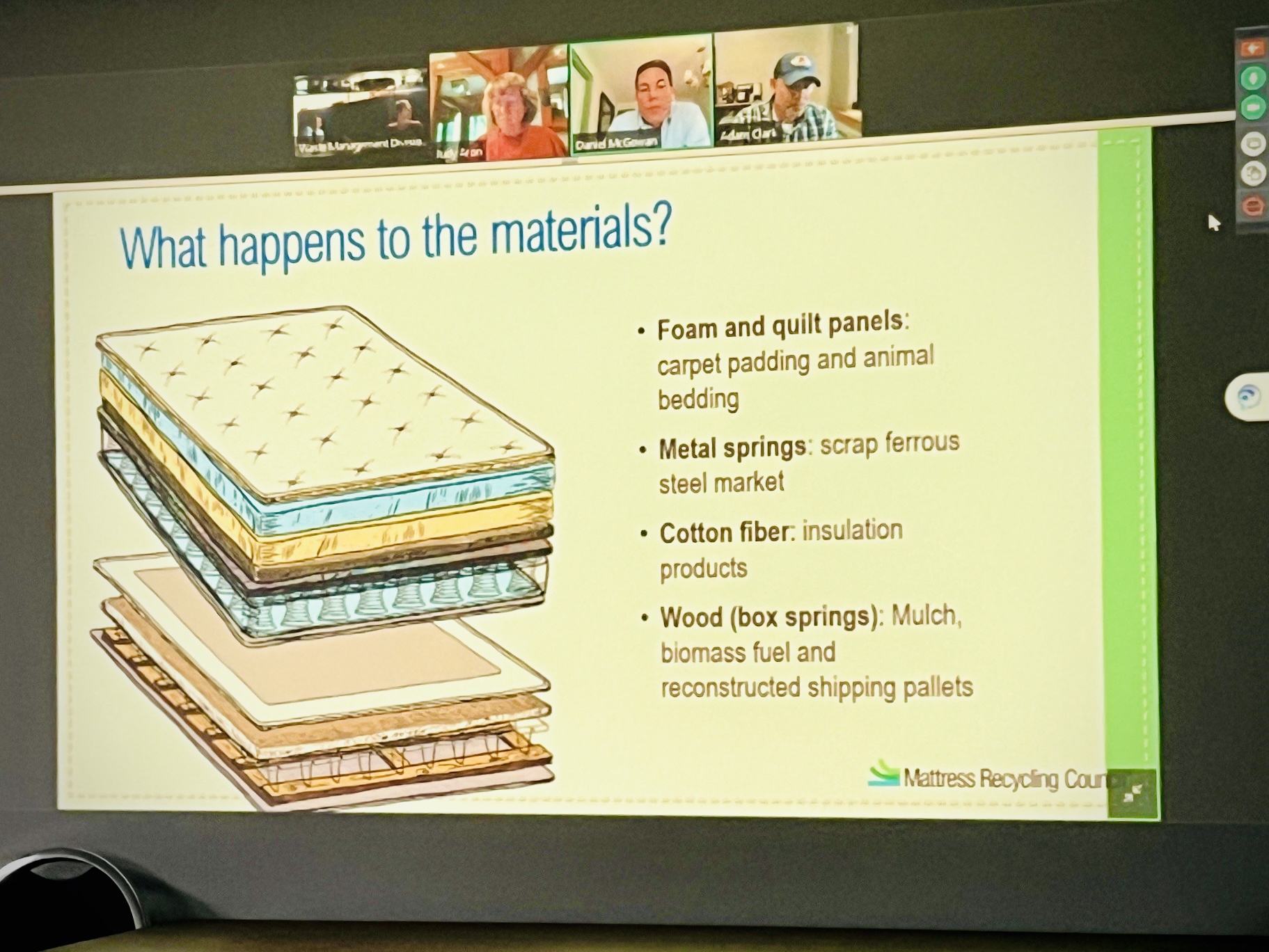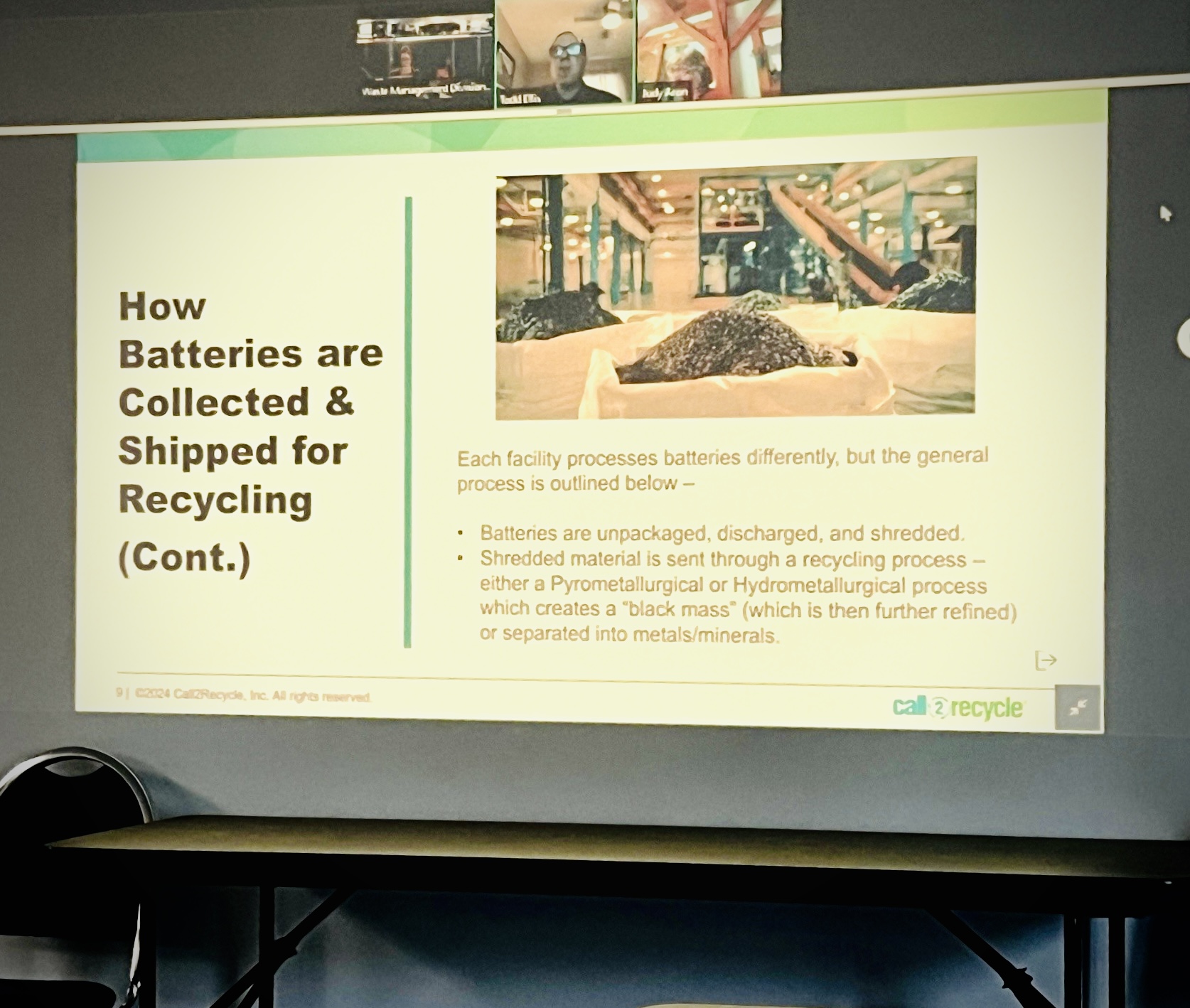Mattress and Battery Extended Producer Responsibility (EPR)
At the NH Solid Waste Working Group’s June meeting, members heard presentations about mattress and battery extended producer responsibility laws by Daniel McGowan of the Mattress Recycling Council and Todd Ellis of Call2Recycle. NRRA once again welcomed the SWWG to its office in Epsom.
Mattress EPR
Dan McGowan shared that Connecticut, Rhode Island, and California have mattress recycling programs, and Oregon will have one starting in 2025. A user fee is added to every mattress sold in those states to fund the program. The fee in Connecticut is $11.75 and in Rhode Island it is $20.50 for each mattress sold. The fee is based on both the amount of units to be sold and the amount of units expected to be returned for recycling. In Connecticut, roughly two mattresses are sold for each one returned, whereas the ratio is closer to 1-to-1 in Rhode Island, in part because many mattresses recycled in RI are sold in MA.
The bulk of fees go toward operations, including containers for towns to collect, haul and recycle mattresses. The programs operate with no cost to the collection site, such as transfer stations.
70% of the materials are recycled and are turned into carpet padding, animal bedding, metal, insulation products, mulch, biomass fuel, and pallets. The vast majority of mattresses can be recycled; only excessively wet, moldy or infested mattresses can’t be recycled.

If a law for mattress recycling was passed in New Hampshire, the Mattress Recycling Council would issue a Request for Proposal for mattress recycling companies to submit bids to collect and recycle NH mattresses. Ideally each state program has multiple recycling companies participating in the program.
Battery EPR
Todd Ellis explained how Call2Recycle provides free battery collection and recycling for EPR states, and battery recycling for a fee in non-EPR states, such as New Hampshire. The cost for operating the programs in EPR states is included in the price of the batteries sold rather than charging a user fee. All batteries collected are recycled. Additionally, Call2Recycle launched an e-bike battery program in 2022.

NRRA's executive director, Reagan Bissonnette, asked about Call2Recycle’s decision in January 2024 to start charging fees for its formerly free rechargeable battery recycling box program. The program was very popular with NRRA members, and NRRA received many requests from members for cost-effective alternatives after Call2Recycle implemented its new fees. Todd explained that the popularity of the program grew exponentially, so Call2Recycle decided to start charging fees in non-EPR states like New Hampshire.
Todd noted that this year has been the most active year for state legislation considering battery EPR than any year since he joined the organization in 2009. Noting that residents aren’t familiar with different types of batteries, Todd encouraged that any EPR law considered by New Hampshire cover all battery types. If NH pursued battery EPR, NHDES would need to approve a plan prepared by Call2Recycle and oversee the program, for which NHDES would receive an administrative fee.
The SWWG will next meet on September 20th. It is anticipated that the agenda will include a presentation by PaintCare about paint recycling EPR laws, followed by the SWWG discussing recommendations for EPR laws to pursue in NH.
